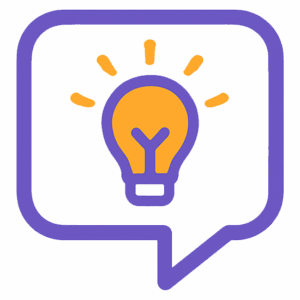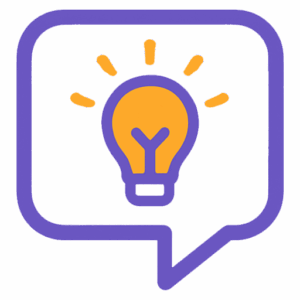When learning a new language, success depends on developing four essential abilities: listening, speaking, reading, and writing. These are known as the four core language skills, and together they form the foundation of effective communication.
Mastering them isn’t just about memorizing vocabulary or grammar rules. Each skill involves unique cognitive processes and requires targeted practice to achieve fluency. In this article, we’ll explore each skill in detail, explain how they’re connected, and offer insights into how learners can develop them effectively.
1. Listening: Understanding Spoken Language
Listening is often the first skill developed when learning a new language, and for good reason: communication starts with comprehension. It involves recognizing sounds, words, and structures and making sense of meaning in real time.
Why Listening Matters
- Builds vocabulary recognition by hearing words in different contexts.
- Trains the ear to distinguish unfamiliar sounds, accents, and intonation.
- Supports speaking skills, since we imitate what we hear.
- Helps learners understand social cues, tone, and conversational flow.
Challenges in Listening
Listening comprehension can be difficult because:
- Native speakers speak quickly and link words together.
- Accents and dialects vary widely.
- Context and cultural references aren’t always obvious.
For example, phrases like “break the ice” or “hit the books” make little sense literally. Without context, learners can easily get lost.
Tips to Improve Listening Skills
- Active Listening: Focus on meaning rather than individual words.
- Start with Slow Audio: Use graded listening materials designed for learners.
- Listen Repeatedly: Replay the same recording to catch missed details.
- Diversify Sources: Expose yourself to podcasts, movies, audiobooks, and conversations in different accents.
- Use Transcripts: Read along while listening to reinforce connections between sound and text.
Recommended Practice
- Watch movies with subtitles first, then rewatch without them.
- Listen to English news channels at different speeds.
- Use learner-focused apps that provide interactive listening exercises.
2. Speaking: Expressing Yourself Clearly
Speaking is often the most intimidating skill for learners, yet it’s essential for real-world communication. It involves producing sounds, forming sentences, and conveying meaning fluently while keeping up with the pace of interaction.
Why Speaking Matters
- Enables learners to actively participate in conversations.
- Reinforces vocabulary and grammar knowledge through practical use.
- Builds confidence in communicating ideas and opinions.
- Improves pronunciation, stress, and intonation over time.
Challenges in Speaking
- Pronunciation difficulties due to sounds not present in your native language.
- Fear of making mistakes often leads to hesitation.
- Limited vocabulary restricts expression.
- Differences in formal and informal registers can cause confusion.
For example, you might know the word “purchase” but be unaware that “buy” is more common in casual conversations.
Tips to Improve Speaking Skills
- Practice Daily: Even short conversations build fluency.
- Shadowing Technique: Repeat what native speakers say, matching rhythm and tone.
- Think in English: Avoid translating in your head to speed up speech.
- Learn Functional Phrases: Memorize common expressions to sound natural.
- Record Yourself: Listening to your recordings reveals pronunciation gaps.
Recommended Practice
- Join language exchange groups or practice with native speakers online.
- Use AI conversation tools to simulate real-life scenarios.
- Mimic native speakers’ intonation patterns using videos or audiobooks.
3. Reading: Building Knowledge and Vocabulary
Reading unlocks new words, structures, and ideas. It’s an input skill like listening, but it allows learners to process language at their own pace, making it a powerful tool for vocabulary growth and comprehension.
Why Reading Matters
- Expands vocabulary by exposing learners to diverse contexts.
- Improves understanding of grammar structures and sentence patterns.
- Builds background knowledge in cultural, academic, and social contexts.
- Supports writing skills by showing how ideas are structured.
Challenges in Reading
- Unknown vocabulary slows comprehension.
- Idioms, metaphors, and figurative language can confuse learners.
- Texts can vary widely in formality and style—news reports differ from novels.
For example, “She spilled the beans” has nothing to do with food; it means revealing a secret.
Tips to Improve Reading Skills
- Start Simple: Use graded readers tailored to your level.
- Focus on Context: Guess meaning before reaching for a dictionary.
- Read Regularly: Consistency is key—daily short texts work better than occasional long reads.
- Highlight and Review: Mark unfamiliar words, then revisit them later.
- Mix Formats: Read articles, stories, dialogues, and academic papers to handle different styles.
Recommended Practice
- Subscribe to English newsletters or blogs on topics you enjoy.
- Read both fiction and nonfiction to balance creative and academic exposure.
- Join online reading groups to discuss texts with others.
4. Writing: Communicating Through Text
Writing develops your ability to organize thoughts, express ideas, and use grammar accurately. It combines creativity with precision, making it one of the most complex language skills.
Why Writing Matters
- Essential for academic success and professional communication.
- Reinforces vocabulary and grammar through active usage.
- Encourages learners to plan, structure, and clarify thoughts.
- Builds confidence in producing formal and informal texts.
Challenges in Writing
- Grammar accuracy can be hard to master without feedback.
- Organizing ideas into logical paragraphs takes practice.
- Differences between spoken and written English can confuse learners.
- Overreliance on literal translation often produces unnatural phrasing.
For example, “I very like music” is a direct translation mistake from many languages; in English, we say “I really like music.”
Tips to Improve Writing Skills
- Keep a Journal: Write daily, even just a few sentences.
- Learn Common Structures: Study patterns for emails, essays, and reports.
- Use Feedback: Tools like grammar checkers help, but human feedback is better.
- Practice Paraphrasing: Rewriting ideas in your own words boosts flexibility.
- Read What You Write Aloud: Hearing your text reveals awkward phrasing.
Recommended Practice
- Participate in online writing challenges or forums.
- Write short summaries of articles you’ve read to consolidate knowledge.
- Gradually move from informal writing (messages, notes) to formal texts (essays, applications).
How the Four Skills Work Together
Although we’ve discussed the four skills separately, language learning is holistic. Improving one skill often strengthens the others.
- Listening + Speaking: Conversational fluency relies on understanding and responding in real time.
- Reading + Writing: Exposure to written structures supports producing accurate texts.
- Input vs. Output: Listening and reading are input skills; speaking and writing are output skills. A balance between them leads to better retention and fluency.
For example, extensive listening builds familiarity with sentence rhythm, which naturally improves speaking. Similarly, reading academic papers enhances formal writing.
Practical Strategies to Develop All Four Skills
- Use Integrated Resources
Choose apps, platforms, or courses that combine listening, speaking, reading, and writing in a structured way. - Set Clear Goals
Focus on measurable targets like:- “Watch one TED Talk daily for listening.”
- “Write a 200-word journal entry three times a week.”
- Immerse Yourself
Surround yourself with English: movies, podcasts, books, and conversations. - Seek Feedback
Teachers, tutors, or language partners can identify weaknesses you can’t spot yourself. - Be Consistent
Short, regular practice beats occasional intense sessions.

